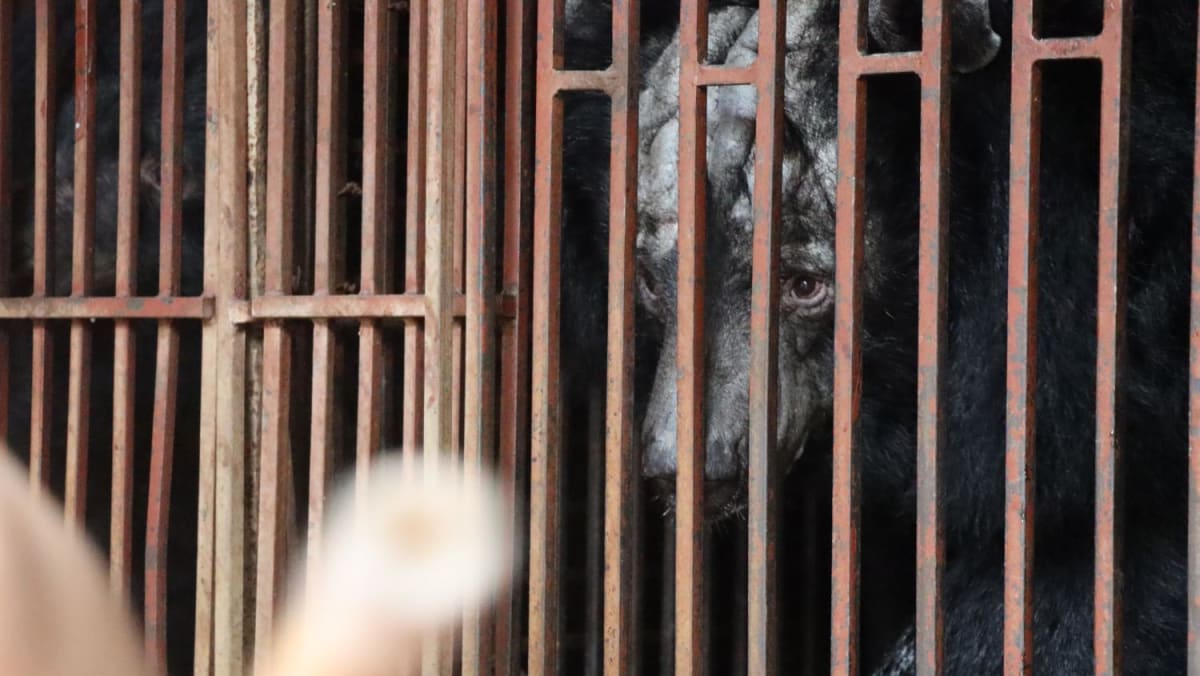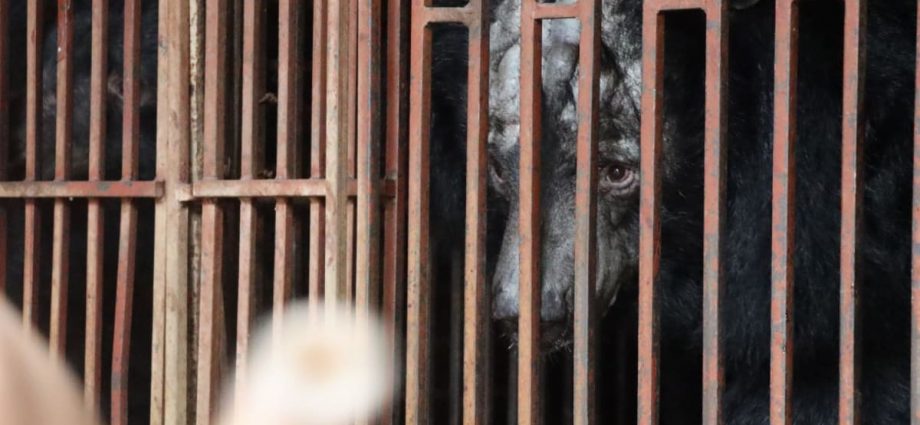
In Vietnam, bears are poached from the wild and then confined in small cages. Poachers tend to trap the animals with snares when they are cubs, and sometimes their mother would be killed.
Bile extraction starts when the bears are between two and three years old and could last for decades. Kept in cages for the rest of their lives, these bears are denied free access to food and water.
“Here in Vietnam, caged bears are drugged with ketamine before being lassoed down to have their bile extracted via a long unsterile needle and electric pump.
“This same cruel procedure can be repeated every month or every two weeks, depending on the farm,” said Heidi Quine, director of Animals Asia’s Vietnam Bear and Vet team.
Unsterile bile extraction procedures can damage the internal organs of the bears. Liver cancers, tumours and extensive adhesions where scar tissue effectively sticks organs together are common in farmed bears.
“We rescue bears with teeth cut to the gum, and their claws and toes cut off to stop them from injuring farmers,” Quine told CNA.
“Beyond the physical impacts of bear farming, the bears we rescue show significant psychological trauma, from defensive aggression towards humans because of fear, to learned helplessness and being completely shut down and withdrawn,” she added.
Animals Asia has collaborated with the Vietnamese government to phase out bear bile farming. In 2017, it signed a memorandum of understanding with the Vietnam Administration of Forestry to ensure all the bears rescued from private facilities are transferred to sanctuaries.
FROM CAGED CAPTIVITY TO FREEDOM
Together with the authorities, Animals Asia has rescued more than 260 bears from bile farms in Vietnam.
The rescued animals are now spending the rest of their days at a sanctuary in Tam Dao National Park, a protected area in northern Vietnam.

